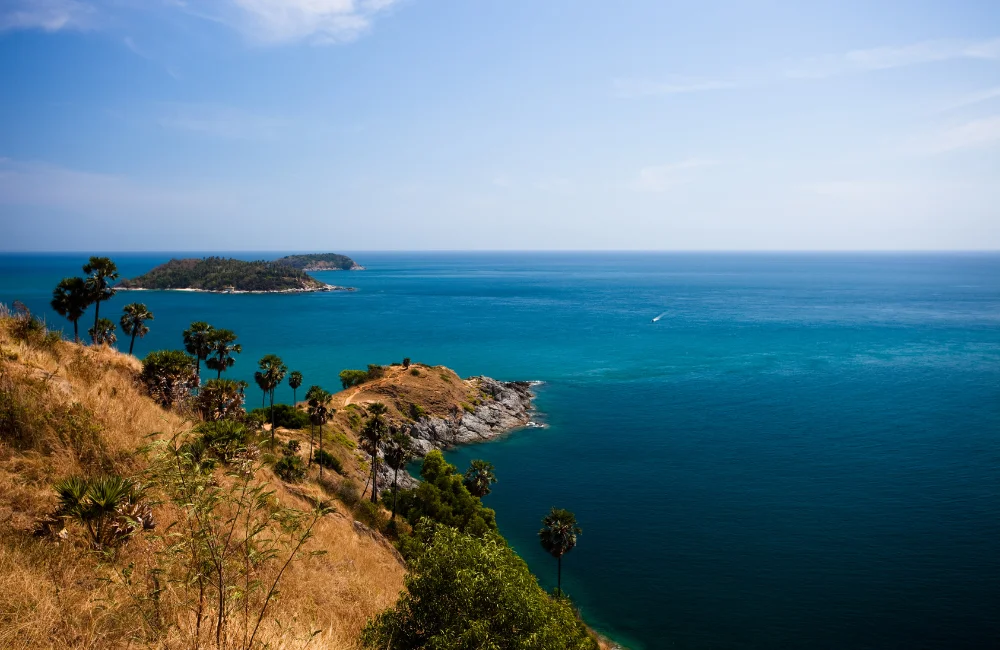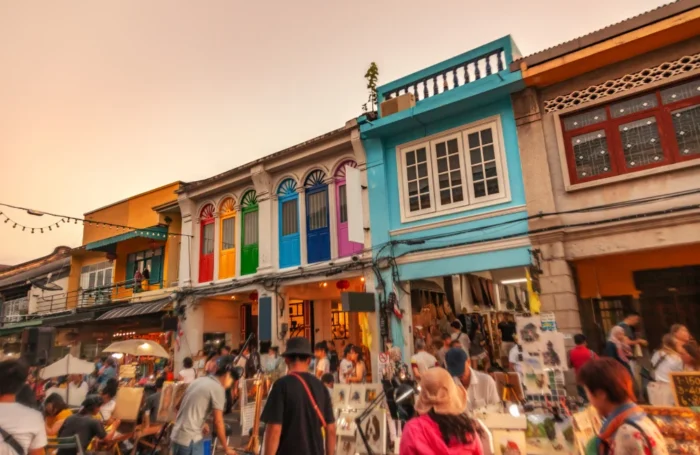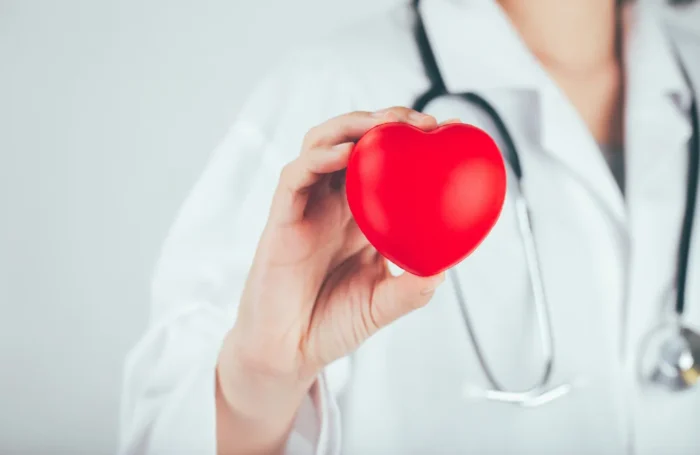Planning a tropical getaway to Thailand’s largest island? You’re probably wondering, “Is Phuket safe?” for your upcoming adventure. While Phuket maintains a strong tourism infrastructure with dedicated tourist police and English-speaking services, understanding potential risks and safety measures will help ensure your trip is both memorable and secure. Whether you’re traveling solo, with family, or seeking Phuket medical tourism services, knowing how to navigate safely will enhance your overall experience.
Is Phuket Safe to Visit?
Generally speaking, is Phuket safe for travelers? The answer is yes, with some important considerations. Phuket maintains relatively low rates of violent crime against tourists, and the Thai government has invested significantly in tourism safety infrastructure.
The island features dedicated tourist police stations, a 24-hour hotline (1155), and widespread English communication in tourist areas. Most visitors enjoy trouble-free stays while exploring beautiful beaches, cultural attractions, and vibrant markets.
However, like any popular destination, Phuket does present certain risks including petty theft, transportation accidents, and tourist-targeted scams. The key to determining whether Phuket is safe for your specific travel style lies in understanding these risks and taking appropriate precautions to minimize them.
How to Protect Yourself from Common Scams in Phuket?
Understanding common scams is crucial when asking “Is Phuket safe for tourists?”. While violent crime remains rare, scams targeting visitors are more prevalent and can significantly impact your vacation experience and budget.
-
Deceptive Offers
Tourist-targeted deception often involves unrealistic offers for tours, gemstone purchases, and unlicensed services. Scammers frequently approach visitors with “once-in-a-lifetime” tour packages at impossibly low prices, only to deliver substandard experiences or demand additional payments. Always book through reputable agencies and research market prices before making any significant purchases.
-
Addressing Overcharging and Fraudulent Practices
Overcharging represents another concern when evaluating whether Phuket is safe for budget-conscious travelers. Some vendors deliberately quote inflated prices to foreigners, particularly in markets, restaurants, and taxi services. To combat overcharging, research typical prices beforehand, negotiate firmly but politely, and consider shopping where locals frequent. Learning basic Thai phrases for numbers and common items can also help demonstrate your awareness of fair pricing.
-
Rental Schemes
Rental scams pose significant risks when assessing if Phuket is safe for independent travelers. Motorbike rental fraud often involves accusations of damage that didn’t exist, resulting in inflated repair charges. Jet ski rental scams operate similarly, with operators claiming expensive damage upon return. Accommodation rental fraud can involve fake listings or properties that don’t match advertised descriptions. To protect yourself, document rental conditions with photos, use reputable rental companies, and verify accommodation through trusted booking platforms. For those seeking health services, ensure any med clinic phuket facility is properly licensed and accredited.
-
Safeguarding Valuables and Personal Belongings
Protecting your belongings is essential. While pickpocketing isn’t as common as in some destinations, theft from beaches, hotel rooms, and vehicles does occur. Never leave valuables unattended on beaches or in unlocked vehicles. Use hotel safes for important documents, excess cash, and electronics.
Health and Wellness Considerations for Your Trip
Maintaining good health is crucial for your overall well-being. Thailand’s tropical climate and different hygiene standards can present health challenges for unprepared travelers. Understanding these factors and taking appropriate precautions will help ensure your vacation remains enjoyable and healthy.
Food and Water Safety Guidelines
Food and water safety significantly impacts whether Phuket is safe for sensitive stomachs and overall health. While Phuket’s culinary scene offers incredible experiences, unfamiliar foods and preparation methods can cause digestive issues for some visitors. Taking basic precautions allows you to enjoy local cuisine while minimizing health risks.
-
Identifying Reputable Street Food Vendors
Street food represents one of Phuket’s greatest attractions, but choosing vendors wisely is important. Look for busy stalls with high turnover, as frequent cooking ensures fresher ingredients. Avoid vendors with limited customers or questionable hygiene practices. If you experience digestive issues, consider scheduling a health check-up in Phuket at a reputable medical facility to ensure proper treatment.
-
Hydration and Avoiding Tap Water
Staying properly hydrated is vital in Phuket’s tropical climate, but water safety concerns make Phuket safe a relevant question for hydration choices. Tap water isn’t recommended for drinking due to potential contamination with bacteria and chemicals. Many hotels provide complimentary bottled water, and convenience stores offer affordable options.
Medical Preparedness and Emergency Services
Understanding medical services helps answer “Is Phuket safe for travelers?” with health concerns or those requiring ongoing medical care. Phuket offers excellent medical facilities, including international hospitals with English-speaking staff and modern equipment. Many visitors specifically choose Phuket medical tourism for quality care at affordable prices.
Comprehensive Travel Insurance for Medical Coverage
Travel insurance becomes crucial when considering whether Phuket is safe for medical emergencies and unexpected health issues. Quality insurance should cover emergency medical treatment, evacuation if necessary, and prescription medications. Some policies specifically cover adventure activities like scuba diving or motorbike riding. If you require routine blood test Phuket services or ongoing treatments like IV drip Phuket therapy, verify coverage beforehand. Additionally, ensure your insurance covers any pre-existing conditions and required medications throughout your stay.
Preventing Common Ailments and Tropical Diseases
Disease prevention is also important. Dengue fever, transmitted by mosquitoes, represents the primary concern, with symptoms including high fever, severe headaches, and muscle pain. Use insect repellent, wear long sleeves during dawn and dusk, and eliminate standing water around accommodations.
Rabies risk exists from stray animals, so avoid contact with dogs, cats, and monkeys. If you require Phuket vaccine services for preventive care or have been exposed to potential rabies, seek immediate medical attention. Some travelers also utilize PrEP Phuket or PEP Phuket services for HIV prevention protocols.
Beach and Water Safety Protocols
Beach safety significantly impacts whether Phuket is safe for water enthusiasts and families. While Phuket’s beaches are generally safe, understanding current conditions and following basic safety protocols prevents accidents and injuries during water activities.
Interpreting and Adhering to Beach Warning Flags
Beach warning flags provide crucial information for swimming and water activities.
- Red flags indicate dangerous conditions with strong currents or hazardous marine life, requiring complete avoidance of water activities.
- Yellow flags suggest caution with moderate risks, allowing experienced swimmers to enter with extra vigilance.
- Green flags signal safe conditions for all water activities.
Pay attention to lifeguard instructions and local warnings, as conditions can change rapidly due to weather patterns and seasonal factors.
Safe Practices for Swimming and Recreational Water Activities
Following water safety guidelines helps ensure that Phuket is safe for recreational swimming and water sports.
- Never swim alone, especially in unfamiliar areas or during rough conditions.
- Stay within designated swimming areas where lifeguards are present when possible.
- Be aware of strong currents, particularly during monsoon season, and avoid swimming near rocky areas where waves can create dangerous conditions.
For those with medical concerns requiring monitoring, having contact information for a nearby STD Clinic Phuket facility provides peace of mind during water activities.
FAQ
Common questions about Phuket safety help address specific concerns travelers have when planning their trips.
Is Phuket safe for tourists?
Is Phuket safe for tourists? Yes, Phuket is generally safe for tourists with millions visiting annually without incident. Taking standard travel precautions significantly reduces most risks.
Is it safe to walk in Phuket at night?
Walking safety depends on the area and time when considering whether Phuket is safe after dark. Well-lit tourist areas like Patong, Kata, and Karon remain relatively safe with good foot traffic and security presence. Avoid isolated areas, dark alleys, and walking alone on remote beaches at night. Stick to main roads and populated areas, especially for solo travelers.
Is it safe to travel to Phuket right now?
Phuket maintains normal tourism operations with standard health and safety protocols in place. Check current travel advisories and any specific requirements for your nationality. The island continues welcoming international visitors with established safety infrastructure and emergency services readily available.
Do and don’ts Phuket?
Do’s:
- Respect local customs and traditions
- Cover shoulders and knees when visiting temples
- Stand for the national anthem when played in public
- Remove shoes before entering temples and homes
- Smile and greet locals politely
Don’ts:
- Touch people’s heads (considered sacred in Thai culture)
- Point your feet at others or religious images
- Raise your voice or show anger in public
- Wear revealing clothing in religious sites
Is Phuket Safe For Solo Female Travelers?
Yes, solo female travelers generally find Phuket welcoming and safe. The island lacks the aggressive harassment culture found in some destinations. Standard precautions include avoiding excessive alcohol consumption, staying in well-reviewed accommodations, and keeping emergency contacts readily available.



